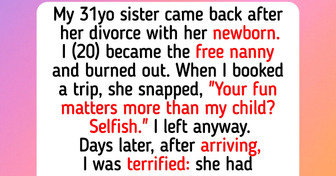Or, you have adhd and its involuntary
10+ Simple Ways to Read People’s Body Language
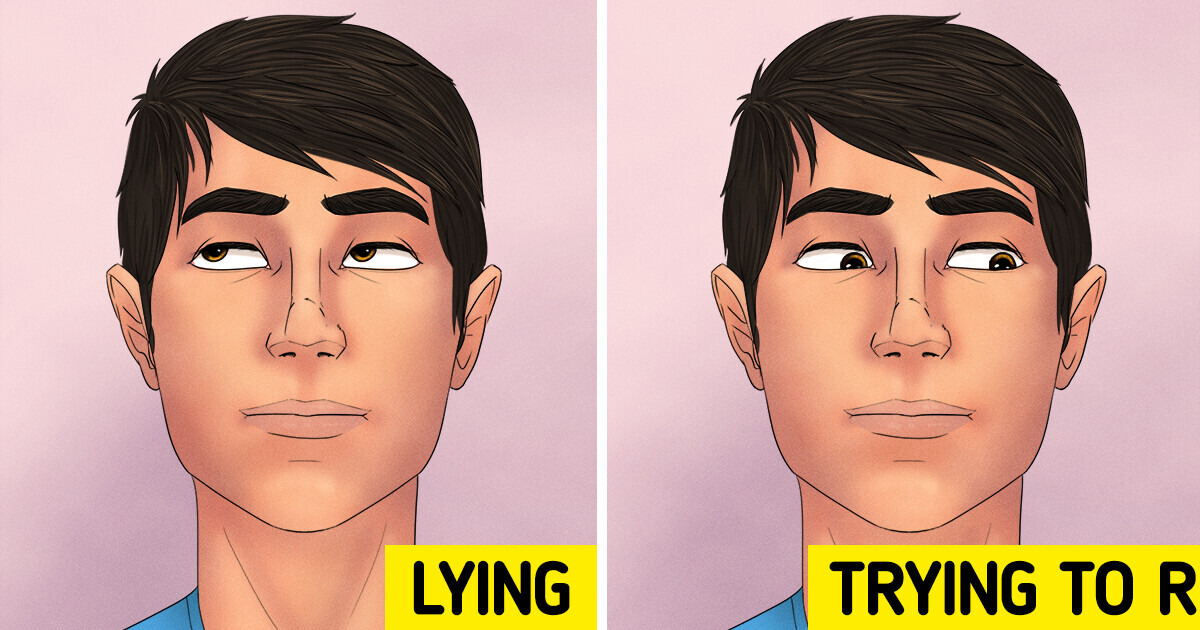
Sometimes, even the smallest things we do with our body parts can send an important message to the people around us. Even though we don’t do them consciously, some gestures can honestly describe how we feel inside and say a lot about us. Understanding body language can be helpful in various situations, so it’s important to know what these things mean.
Important: this article provides information for entertainment purposes only and should not be taken too seriously.
1. The habit of fidgeting
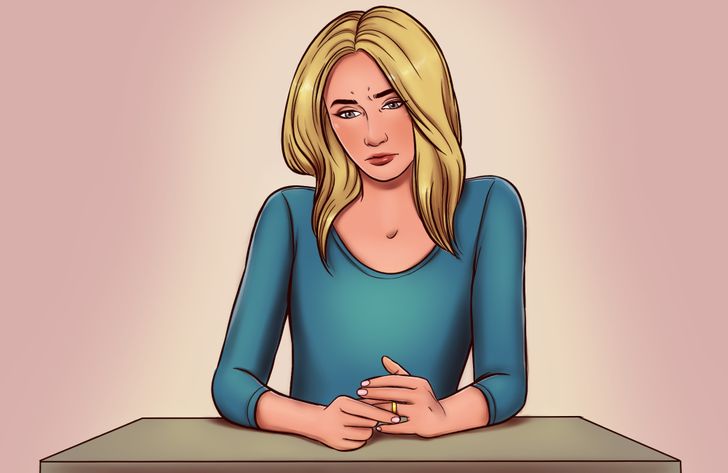
Whether it’s a persistent habit or a coping mechanism during stress, it’s advisable to curb fidgeting. Constantly twirling hair, touching rings, tapping fingers and feet, or frequently checking your watch during crucial conversations or meetings might signal disinterest or a wish to be somewhere else.
2. Touching the eyebrows
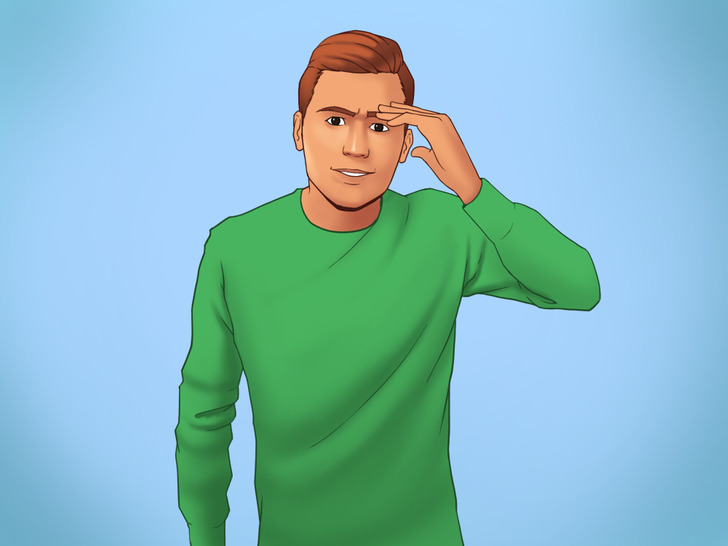
If you notice someone touching their eyebrow, it may suggest that they are feeling pressured or stressed and, as experts say, a self-soothing method used to regain control. This body language cue might indicate they’re trying hard to recall something. This gesture becomes more noticeable when someone has been profoundly contemplating a subject.
3. Nail-biting
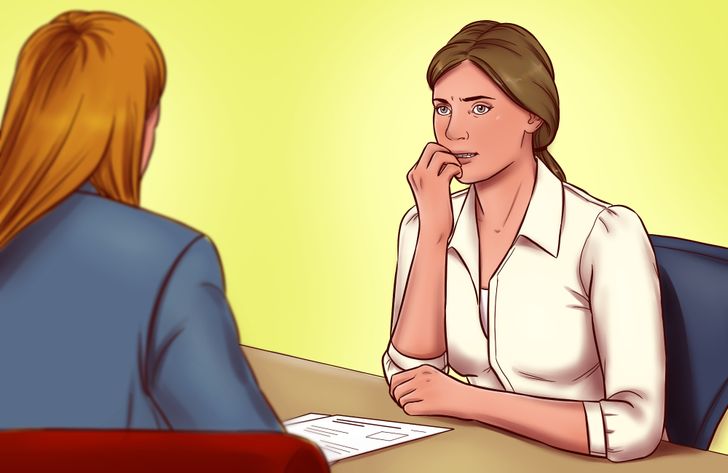
Nail biting is another sign of nervousness and shyness visible to others. While it might provide stress relief, it inadvertently reveals your emotions. Moreover, it can be distracting for the person you’re conversing with and potentially off-putting. Additionally, it harms the condition of your nails, which affects how others perceive you, possibly leading to a negative impression based on appearance.
4. Pay attention to the posture

They can see if how they want is great thing about perception of a situation and assuming they know, I slouch because it's the only way I feel comfortable lol. But when it comes to any job or tasks I might be slouching at, I lack no confidence at all.
The way you stand or sit shows how confident you feel. Slouching tells others you might be unsure. If you keep slouching, it might become normal even when you’re not uncomfortable, and others might still see it as a sign of low self-esteem, no matter the circumstances.
5. Extreme lack of movement
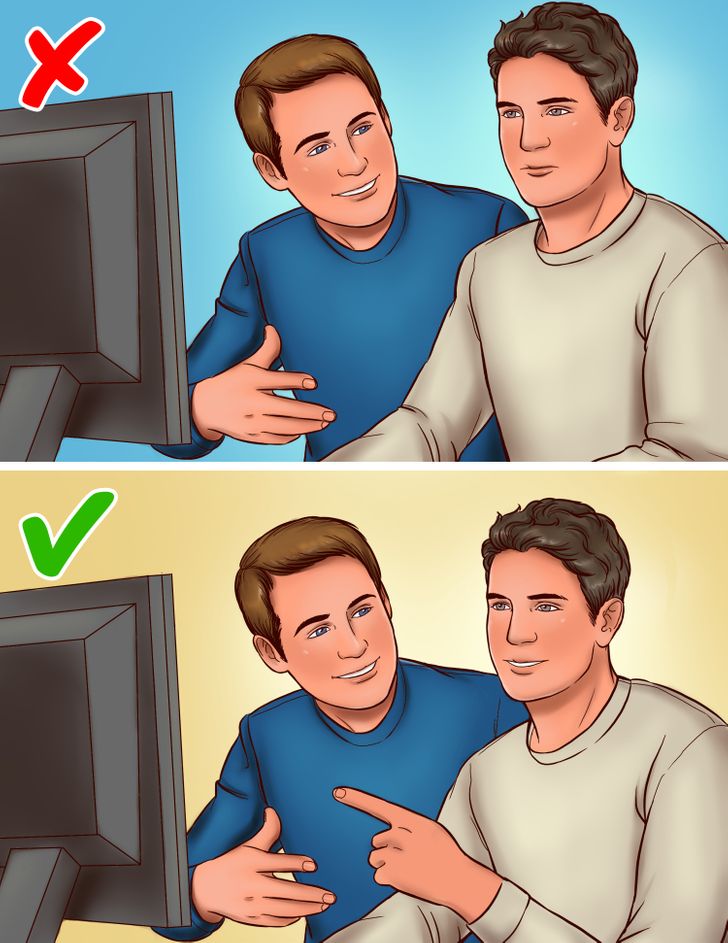
If you look too calm and still, people might think that you are not interested in talking to them or hearing what they want to say. Your lack of movement could also make them uncomfortable. Try to show real excitement with your facial expressions and subtly mimic the other person’s gestures. Doing this can help you create a better impression.
6. Rolling the eyes
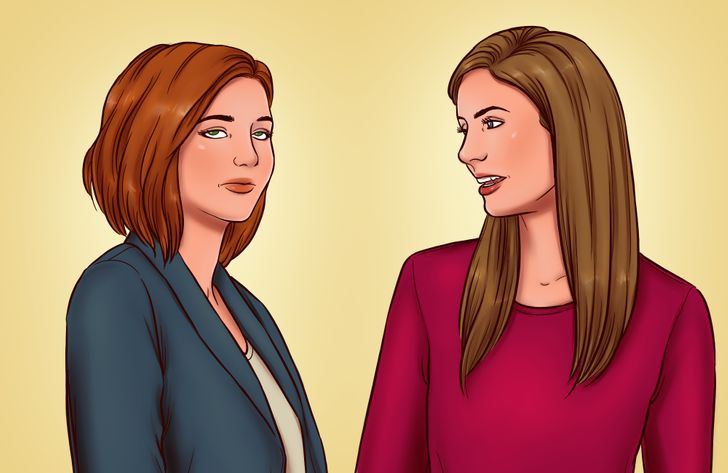
Eye-rolling is a clear way of showing disrespect. While it might be harmless among friends as a non-verbal way to signal boredom or annoyance, responding to a colleague, boss, or stranger can be offensive and off-putting due to your facial expression.
7. Forgetting to smile
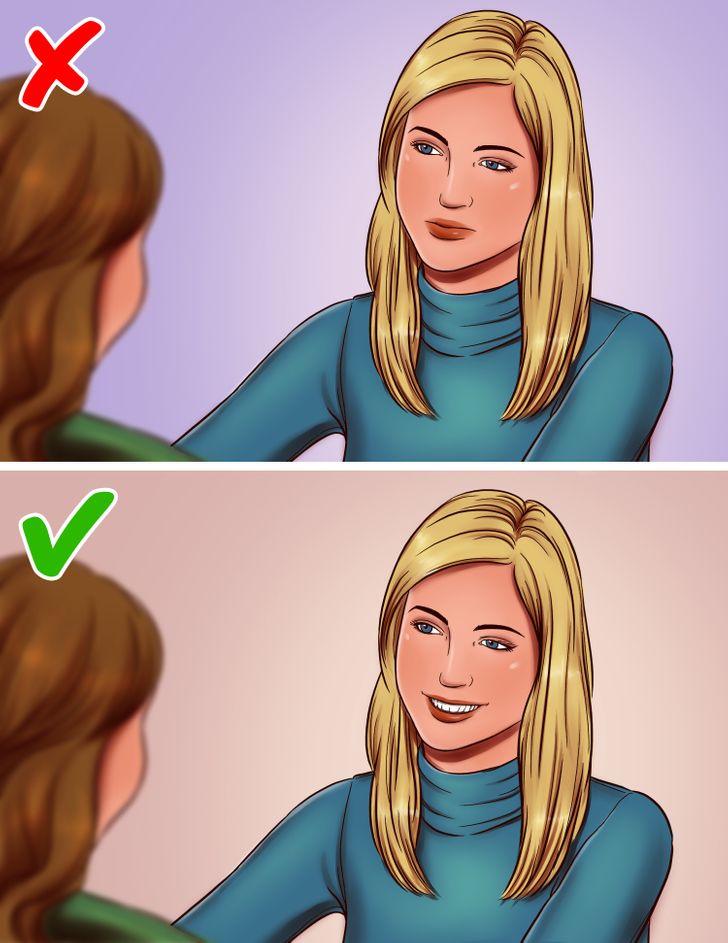
We sometimes overlook smiling, especially in serious settings. However, it’s a powerful tool for displaying confidence and approachability. It tends to be contagious, often prompting others to smile and fostering a positive, open atmosphere. But remember, forcing a smile can make you seem insincere and less trustworthy.
8. The eye contact, too much or too little
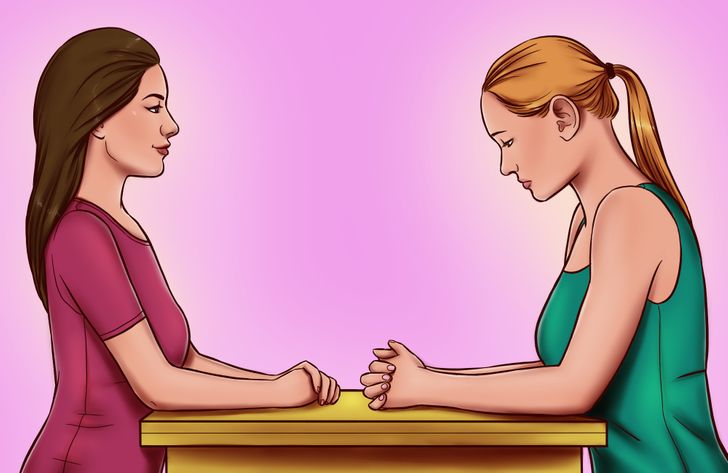
Not making eye contact might suggest a lack of confidence or disinterest, possibly making you seem untrustworthy. Conversely, staring too intensely can come off as aggressive and discomforting for the other person. Try opting for occasional, meaningful gazes instead.
9. Rubbing the neck
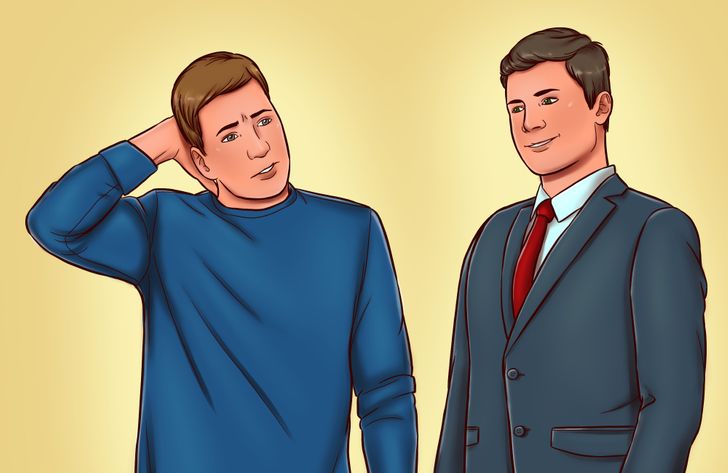
Rubbing your neck could be a stress-relief habit or a way to release tension, even without feeling anxious. However, pay attention to your hand movements and try to minimize this action. Doing it too often might unintentionally signal your anxiety and discomfort to others.
10. Direction of the eyes while talking
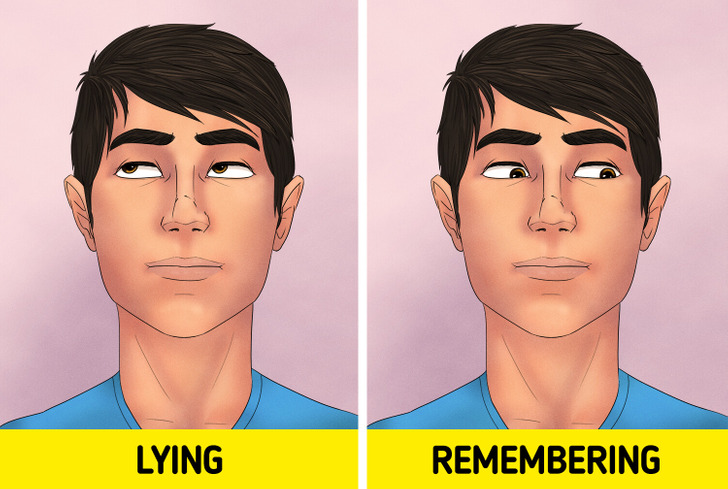
When chatting with someone, watch their eyes closely. They say our eyes can speak louder than words, revealing a lot about us. For instance, if someone looks up and to the right, they might be picturing something in their mind. Sometimes, liars might do this to fabricate mental images. If their gaze shifts downward and to the left, it could mean they’re having an internal conversation, trying to recall past events.
11. Frequently blinking
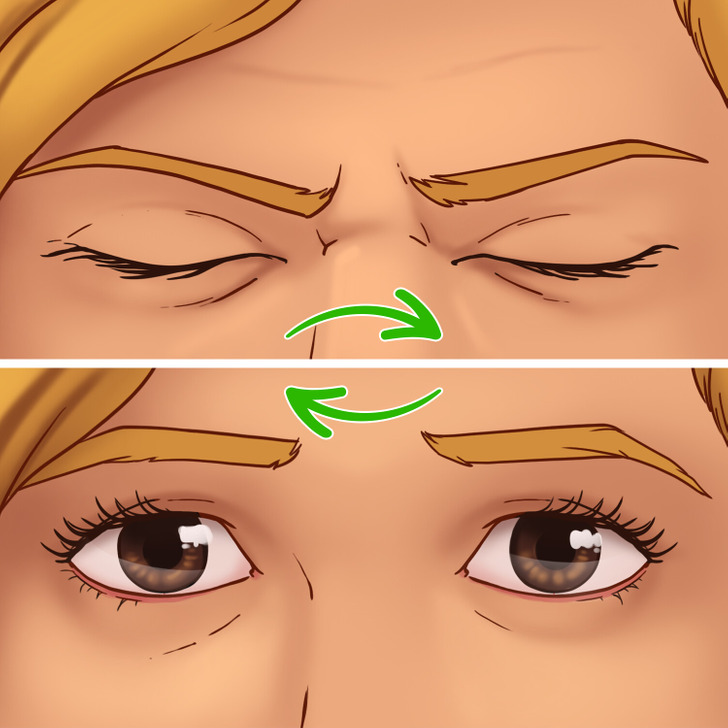
One, this article isn’t meant to be taken seriously.
Two, it’s for entertainment only.
Blinking is natural, something we all do. Yet, sometimes we find ourselves blinking more frequently. Some say it could be due to stress, nerves, worry, or even when someone isn’t being honest with us.
When you want to impress others, pay attention to how you communicate without words. It can help you spot mistakes you might make while talking to people.
Comments
Related Reads
8 Cool Psychological Tricks to Read People’s Minds

9 Signs a Person Likes You Even If You Don’t Think So
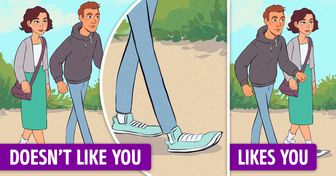
The First Thing You See in These 5 Pictures Will Reveal the Truth About Your Inner State at the Present Moment

I’m Not Going to Share a Huge Inheritance With My Family

15 Stories About People Who Made Decisions That Can’t Be Logically Explained
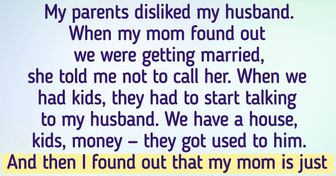
14 Hilarious Stories About Really Awkward Situations
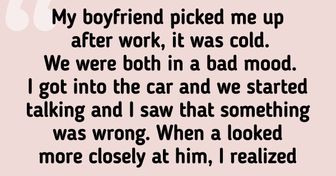
Meet the Woman Who Spent Millions to Resemble Barbie

18 Famous Actors That Have Become Even More Handsome With Age

11 Emojis We Have Been Using Wrong Until This Moment
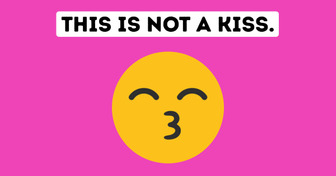
10 Stepdads Who Proved Kindness Creates Real Fathers
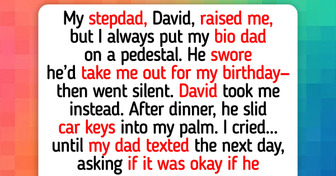
I Quit After My Boss Punished Me for Attending My Mom’s Surgery
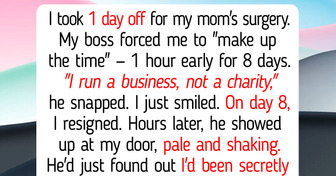
I Became a Free Nanny After My Sister’s Divorce, Then She Crossed a Line
